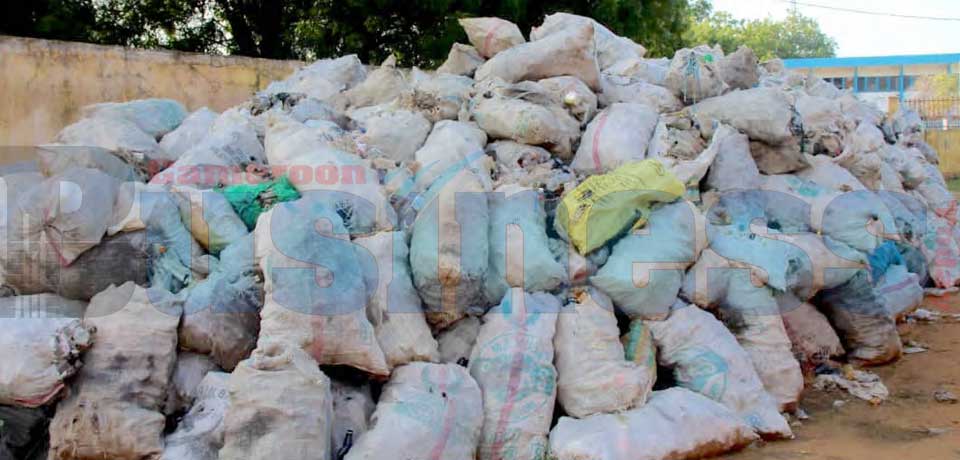Introduction.
The COVID-19 pandemic appears to be tapering off, the rates of vaccination are rising slowly and countries have reopened their borders and began to operate normally. However, the pandemic illustrated that countries across the world are interconnected and the need to insulate supply chains. For Cameroon, a country that imports more than it exports, the COVID-19 pandemic reiterated the need to boost the resilience of its supply chains.
The Cameroonian economy is dependent on commodity exports and domestic production of agro-processed foods is still low. To put this into perspective, the manufacturing sector contributes only 13.2 per cent of the value to overall GDP, while the contribution from the agriculture sector is falling, but remains elevated. During the COVID-19 pandemic, governments across the world closed their borders and imposed restrictions that impacted the production and supply of manufactured and intermediate products. In Europe and North America, policymakers imposed restrictions on pharmaceutical products and imposed restrictions on the manufacturing sector. Domestically, the government-imposed lockdown disrupted agro value-chains, reducing access to vital commodities and products. As the pandemic intensified, the price of goods and services rose across the country, reiterating the need to bolster the resilience of value chains.
The Agriculture Sector : The agriculture sector is one of the most important levers for economic growth in Cameroon, employing over 60 per cent of the active workforce and contributing close to 17 per cent of the country’s GDP. However, a significant portion of imports is driven by agro-processed products ranging from juice, biscuits, and other consumer products. This partly explains why Cameroon has a current account deficit with China ($996,820 about FCFA 177,167,566), France ($330,113), and Germany ($318, 232 about FCFA 186, 729, 245). In order to mitigate the impact of rising imports on macroeconomic stability, domestic consumption, the exchange rate, and rates of poverty, we have embarked on import substitution policies. However, these policies sought to protect and promote domestic firms and start-ups, rather than outline a specific strategy with quantitative guarantees that reduced the reliance on imports.
As the COVID-19 pandemic intensified, prices of basic agricultural products rose precipitously. In Douala, the price of consumer products such as pasta, orange juice, and cereals rose by 2.5 per cent, while the prices in Yaounde rose by 2.3 per cent. Worst still, there is a disconnect between rural producers and urban markets. Yes, 80 per cent of all agricultural products are consumed in urban centres, but the price of food prices and imports rose during the pandemic because agricultural value chains are little developed. To put this into context, one should look at cassava, a cash crop consumed in various forms by Cameroonians. The majority of farmers are small farm holders who farm less than one hectare of land, thereby limiting their productive capacity and ability to adjust supply to meet rising demand. The necessity for infrastructure to prioritize rural-urban high-ways and secondary roads is glaring as some producers live in the most remote parts of the rural zones, which limits the ability of their products to reach markets in both urban and rural centres. Another concern is that the rates of poverty are much higher in rural areas, especially in the North where over 56 per cent of the population lives below the poverty line. As such, agro value chains should not only prioritize market access in urban areas but equally in rural centres as the rate of poverty is more closely tied to the price of basic commodities.
The Service Sector : The service sector contributes over 51.2 per cent of GDP in Cameroon, and is dominated by transportation and logistics for Agro value chains. However, the contribution from tourism - estimated at 7 per cent of GDP- is equally an important determinant of agro value chains. However, like most sectors, it was adversely impacted by the COVID-19 pandemic, with infrastructure work interrupted and any improvements in the physical infrastructure.
Labour Markets and domestic production : During the Covid-19 pandemic, the government imposed state-wide lockdowns, which caused employees in the formal sector of the economy to stay at home. The informal nature of work suggests that a large number of employees could not contribute nor facilitate the production, import, export, and sale of products. Reduced mobility coupled with border closures increased supply chain bottlenecks and caused the prices of imported products to rise. There is no local substitute for a lot of imported products, which causes prices of goods and s...
















Commentaires